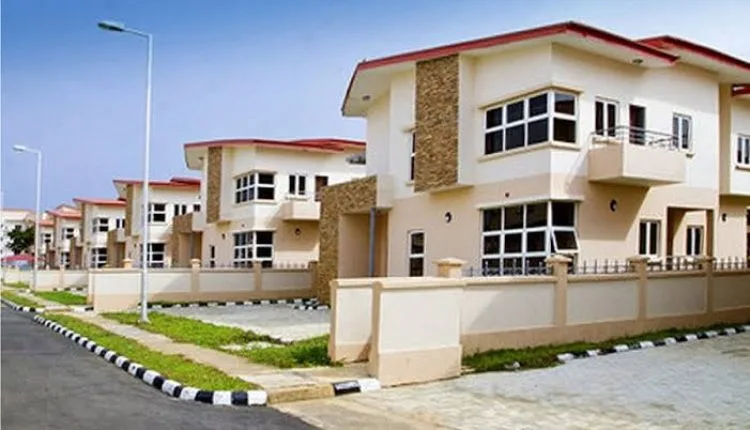Nigeria’s Inflation Rate: The Impact on Lagos House Rents
Nigeria’s inflation rate has surged to 32.7% in recent months, affecting essential commodities intensely. For tenants and landlords in Lagos, however, these numbers are now more than abstract statistics—they are reshaping lives and fuelling heated conflicts.
Both sides feel pushed to their limits, with tenants seeing the hikes as exploitation, while landlords argue they’re adjusting to economic realities.
Join our WhatsApp ChannelEscalating Fuel Prices and Inflation: The Landlords’ Perspective
“I am not in this to gouge anyone, but my costs have nearly doubled,” said Mr. Adewale, a landlord in Ogunyinka Street, Oshodi, Lagos. Fuel prices, which leapt from N800/litre to N1,200/litre, coupled with high inflation, he explained, have left landlords needing to adjust their rents. “Everything from maintenance to basic services has become a luxury. Tenants don’t see these struggles,” Adewale added with frustration.
Another landlord, Mrs. Olajumoke, echoed this sentiment, noting that many property owners rely solely on rental income. “If tenants paid for more than just utilities, maybe there’d be room to compromise. But my income depends on these rents, and they barely cover expenses now,” she stated.
In an environment where landlords depend on rent to sustain themselves, inflation has compounded their reliance on tenants’ contributions.
Tenants Push Back on Rising Rents
The view from the tenants’ side, however, paints a different story. Mr. Tunde Ajayi, a marketing executive and a tenant in Oshodi, expressed his frustration, “We already handle everything—water, electricity, waste. Now they want to increase rent again? It feels like a punishment. I was shocked just two month ago, my landlord sent a letter increasing my rent from N750,000 to N1,000,000. This is insane.”
READ ALSO: Bitter Pills To Swallow: Nigeria’s Inflation Rate Sparks Crisis In Medicine Prices
Another tenant, Ms. Funke who stays in Ajao Estate, Oshodi Lagos, shared her perspective.“Is it fair to take every burden from government policies and put it on us? We’re all struggling. Rent should be the one thing that stays stable, My house rent was recently increased by 40%” she wrote. This sentiment resonated widely, with others echoing their disapproval and calling for government regulation.
The clash has even reached online platforms, where tenants increasingly voice their anger at what they perceive as unfair treatment. Mr. Chinedu, a Facebook user, commented, “My house rent in part of Surulere, Lagos for a two bedroom flat was increased from N650,000 to N1,000,000 four weeks to my renewal day. Threatened me to leave his house if I cannot meet up. If landlords raise rents every time prices go up, then where’s the stability for people trying to make ends meet? We’re practically paying for every cost under the sun already.”
Expert Opinions on the Nigeria’s Inflation Rate and Housing Sector
For Dr. Adetola Adebayo, an economist, the pattern is part of a larger economic challenge. “When inflation skyrockets, housing is one of the most affected sectors,” he said. The recent inflation rate figures indicate that essential services are becoming pricier, he explained. “Landlords see costs rising everywhere, and they feel entitled to pass that on to tenants,” Dr. Adebayo observed. However, he pointed out that it’s a cycle that puts undue pressure on both landlords and tenants.
Professor Uche Okoro, an urban housing specialist, agrees that while some landlords are raising rent to match inflation, it’s clear tenants are already burdened with utility payments. “The government should look into both regulatory and relief measures that can ease the strain on both sides. Rent is a major cost in urban settings, and without intervention, it’s a recipe for social discontent,” Professor Okoro warned.
The Public Outcry: “Why Should Inflation Affect House Rents?”
Public outcry has gained traction as Lagos residents question why inflation and fuel prices should affect house rents. “The money I used to spend on my family’s groceries doesn’t even last a week now, and the landlords just want more,” said Mrs. Nkechi, a mother of two who has seen her expenses soar. For many like her, the rent hikes signify more than just an economic adjustment—they symbolise a growing disparity between income and living costs.
Another tenant, Mr. Ibrahim, was vocal on Facebook also. “Just because fuel prices are high, why does rent have to go up? My house was increased by 20% last month. Tenants like us cover every other expense. Landlords should absorb some costs instead of just passing them on.”
The sentiment shared by tenants has prompted discussions about whether landlords might exploit these economic conditions. As they struggle to make ends meet, many Nigerians are calling for stricter regulations to prevent what they view as opportunistic rent increases.
Landlords Argue for Rent Hikes to Balance Rising Costs
On the other side, many landlords feel their needs are overlooked. “Do people think we’re immune to these price hikes?” said Mr. Adewale. “When inflation affects every industry, it’s natural that rents increase, too.” He emphasised that landlords like himself have been “demonised” for trying to cover legitimate expenses.
Mrs. Olajumoke pointed out that in many areas, landlords already absorb costs without expecting tenants to contribute. “We’re not bad people. I didn’t set out to increase rents yearly, but I can’t ignore the rising costs. If everything from paint to water bills has doubled, it’s unrealistic to keep rent the same.”
Some landlords are calling on the government to recognise housing as a critical part of the economy, arguing for financial support that would allow them to keep rent levels reasonable without sacrificing their own financial stability.
Expert Recommendations: A Middle Ground for Nigeria’s Housing Market
Experts suggest a potential middle ground that could alleviate the current crisis. “A subsidy program or tax reduction for landlords could help maintain rental prices, especially in urban areas,” suggested Dr. Adebayo. “If the government were to step in with specific relief measures, landlords might not feel the need to hike rents as aggressively.”
Professor Okoro advocated for regulation that ensures tenants aren’t unduly impacted. “Implementing limits on how much rent can be increased annually, regardless of inflation, would protect tenants from volatile fluctuations. Ultimately, it’s about balance,” he noted.
A Growing Divide over Nigeria’s Inflation Rate
As inflation and fuel prices soar, the struggle over rent hikes in Lagos reveals a deeper conflict. Tenants argue that they’re already overburdened, while landlords insist they’re merely responding to rising costs. Both sides await a solution—whether it comes from governmental intervention, subsidies, or regulatory frameworks. The question remains: in a time of economic hardship, who should bear the brunt of Nigeria’s inflation rate?
Emmanuel Ochayi is a journalist. He is a graduate of the University of Lagos, School of first choice and the nations pride. Emmanuel is keen on exploring writing angles in different areas, including Business, climate change, politics, Education, and others.
- Emmanuel Ochayihttps://www.primebusiness.africa/author/ochayi/
- Emmanuel Ochayihttps://www.primebusiness.africa/author/ochayi/
- Emmanuel Ochayihttps://www.primebusiness.africa/author/ochayi/
- Emmanuel Ochayihttps://www.primebusiness.africa/author/ochayi/


















Follow Us